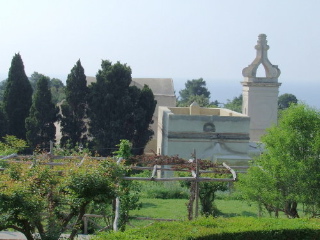
The Carthusian Monastery, Capri, Italia
I’m looking at time, and the heart of things — brands and story, discovery and myth, truth and relationships.
There are brands that are fresh — closely originated in recent time — a story that speaks to an origination in the last century, or less, even mere decades. Or years. Or yesterday. And then there are others that reach back further in time.
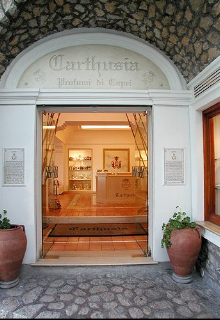
Both the Carthusia label of fragrance and body care, as well as Dominican expression of Santa Maria Novella that have origins that reach back centuries — in story — and the evocation of brand becomes a deeper, even mystical, origin.
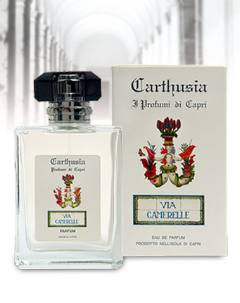
Not every product can have this kind of legacy, but what remains in the mind of the challenge is the scenario in which these more ancient and beautifully compelling brandstories are, in fact, faltering and dissipating — ultimately, dying out and disappearing. I’m curious about why brands like this die. And I’ve talked about this a great deal — with brand-makers & brand-leadership — who are, in fact, facing some of these very issues.
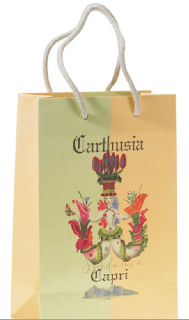
Why does any business fail? Relevance? Matching product alignments to reflection in community. And that is more about the management of legacy and experience than anything else. What’s been expressed to me is the maintenance of techniques that are age-old forms of manufacture, handed down from generation to generation. One generation to another — a generation, a making, a creation.
What’s that mean?
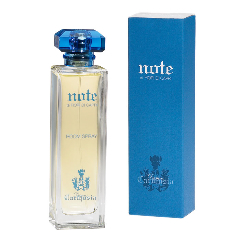
Note, a signature scent designed for Capri‘s queen, circa 1380.
Usually there’s a crossover — from the standpoint of the founding legacy — for example, in this instance the herbological practices of a group of monks on Capri — which then transitioned private ownership. It’s clear that the hint of resonance is a reach to the past and the kind of conscious application of making products that gather the intelligence of the past, to make things that are even more special, more valuable, more memorable in the future.
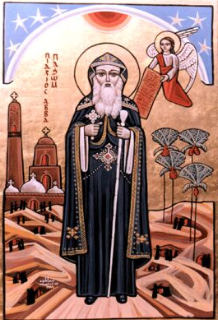
Pachomius the Great, founder of the Monastic tradition.
Here is something more to that crossover connection — where the heart of the product lies deep in the transitions of time that are truly far, even remote, in their founding.
Bruno, the chief mendicant and founder of the Carthusian cenobitic order, the monastic and contemplative — and self sustaining — tradition. Bruno proffers in a note to a colleague:
“I stand as a beggar before the mercy of God, praying that he will heal all the infirmities of my soul and fulfill all my desires with his bounty.
I am living in the wilderness of Calabria far removed from habitation. There are some brethren with me, some of whom are very well educated and they are keeping assiduous watch for their Lord, so as to open to him at once when he knocks. I could never even begin to tell you how charming and pleasant it is. The temperatures are mild, the air is healthful; a broad plain, delightful to behold, stretches between the mountains along their entire length, bursting with fragrant meadows and flowery fields. One could hardly describe the impression made by the gently rolling hills on all sides, with their cool and shady glens tucked away, and such an abundance of refreshing springs, brooks and streams. Besides all this, there are verdant gardens and all sorts of fruit-bearing trees.”
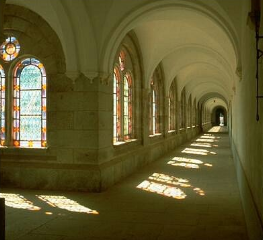
In the architecture of silences, Pachomius explored a deeply spiritual life, even to the degree of openly discounting formal roles he’s been offered, in communicating with students, pilgrims and clergy. He’s taken a path that creates ultimately a kind of crossover from one life, to another — one path of abstinence and meditation, to another – healing.
And therein lies the legacy of what is Carthusia, today.
Interestingly enough, this legacy is a challenge to market. And therefore, it’s not really presented as part of the brand context.
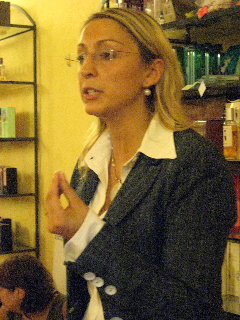
I met with Rita Donadei, the sales representative for Intertrade Europe, to hear her take, and she offered the tellings of a brand that is trying to find itself in the mass plethora of fragrances that are gathering presence in the market. She is alive with passion. Niche fragrances are hard to sell — since the market is already overloaded with complex phrasings of marketing strategy and promotional gimmicks.
But what I’d offer here, is the truth. That Capri is a presently wonderful place for tourism, but it’s more — there’s deep legacy there, a mystery, a healing heritage, that reaches back far in time and passes, time and time again into the present era.
And why not hold to the deeper story — retain the wonder of the farther past, allow that distillation to emerge in the present — by the magic of scent and all the recalling that can happen, with the right notes — to marketing, to message, to visualized packaging and to profumo di vita?
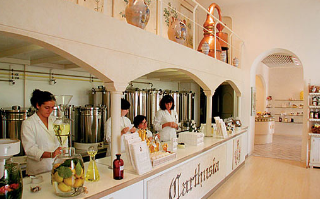
tsg | firenze